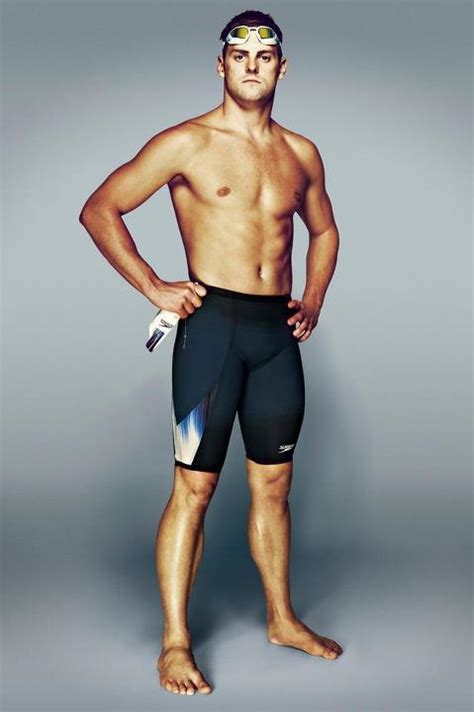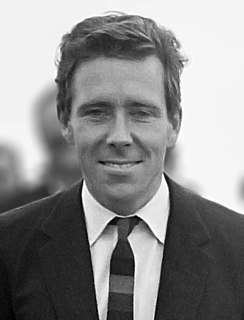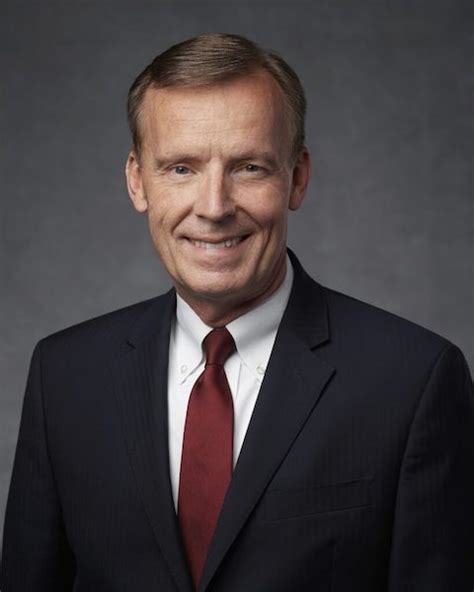A Quote by Patti Smith
One of my great goals when I first started taking photographs or showing them publicly is that people might want one for over their desk. That's my goal.
Related Quotes
I set goals, but they're mostly very personal goals. I never try and set a goal where 'I want to win this,' or 'I want to do this,' where other people can affect what I do. If I want to swim a new best time, I sit down and work out the best way of doing that. Whether I can shave a few tenths of a second off a turn or the start, my goal is putting them all together in a race. That's the way I set my goals.
Although goal setting can clearly be overdone, only a few people are overly involved with goals and goal setting; most people do far too little goal setting, including the reflecting that precedes the setting of such goals. Too many marriages have financial goals but not other explicit goals. Yet the gospel is certainly goal-oriented.
Things changed a little when I started taking photographs for magazines. I was afraid in the beginning. I thought, "Oh I can't do it, because I have never taken a photographs commercially for a magazine." But I wanted to learn so I started. But when I took models from agencies, I took beginners. Sometimes they were really good, but you have to work with them. You have to be good with women and the boys.
If you're trying to be miserable, it's important you don't have any goals. No school goals, personal goals, family goals. Your only objective each day should be to inhale and exhale for sixteen hours before you go to bed again. Don't read anything informative, don't listen to anything useful, don't do anything productive. If you start achieving goals, you might start to feel a sense of excitement, then you might want to set another goal, and then your miserable mornings are through. To maintain your misery, the idea of crossing off your goals should never cross your mind.
Every decision a person makes stems from the person's values and goals. People can have many different goals and values; fame, profit, love, survival, fun, and freedom, are just some of the goals that a good person might have. When the goal is to help others as well as oneself, we call that idealism. My work on free software is motivated by an idealistic goal: spreading freedom and cooperation. I want to encourage free software to spread, replacing proprietary software that forbids cooperation, and thus make our society better.
It [moviemaking] is about entertaining audiences with great characters and great stories, you want to make people laugh, you want to make people cry, you want to have great music that is memorable. You want a movie that, as soon as it's over, you want to watch it again, just like that. That's what it is, whether it's live-action, animation, hand drawn, computer, special effects, puppet animation, it doesn't matter. That's the goal of a filmmaker.
During my performances, I don't like folks to take pictures because I feel that we live in a very photographic time. Photography was invented over 100 years ago, and now it's at its peak because everyone has a camera. The fact that they are taking experiences and filtering them through a mechanical lens I find amazing, but also disheartening. Amazing when you have photographs that start revolutions. Disheartening when you have people making photographs but not living.
I find that goal setting, when done this way, leads to goal achieving. The chronic failure to achieve goals lowers self-esteem. Show me a failure to achieve a goal, and usually I can show you the violation of one or more of the above criteria. Imposed goals, vague goals, and unrealistic goals tend to produce only partial successes and outright failures.



































